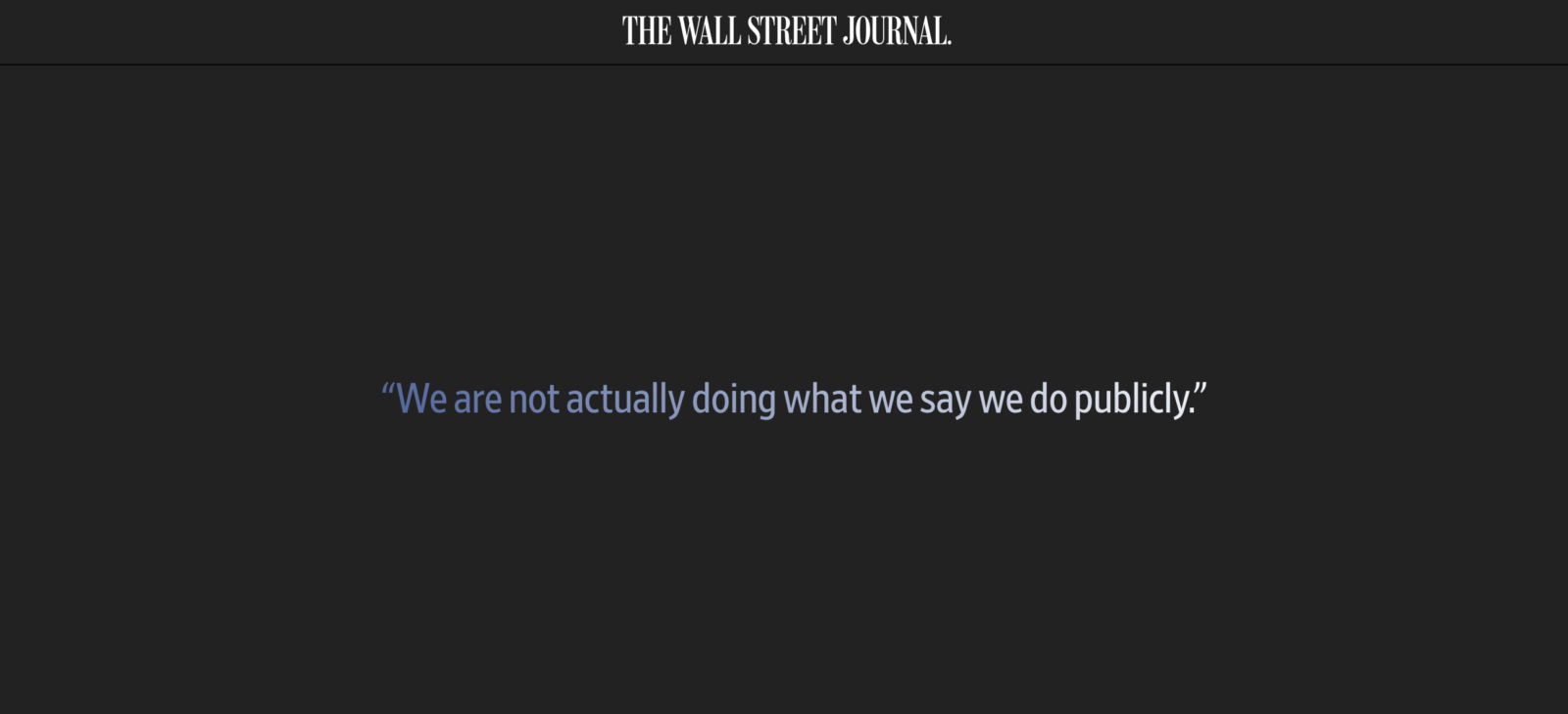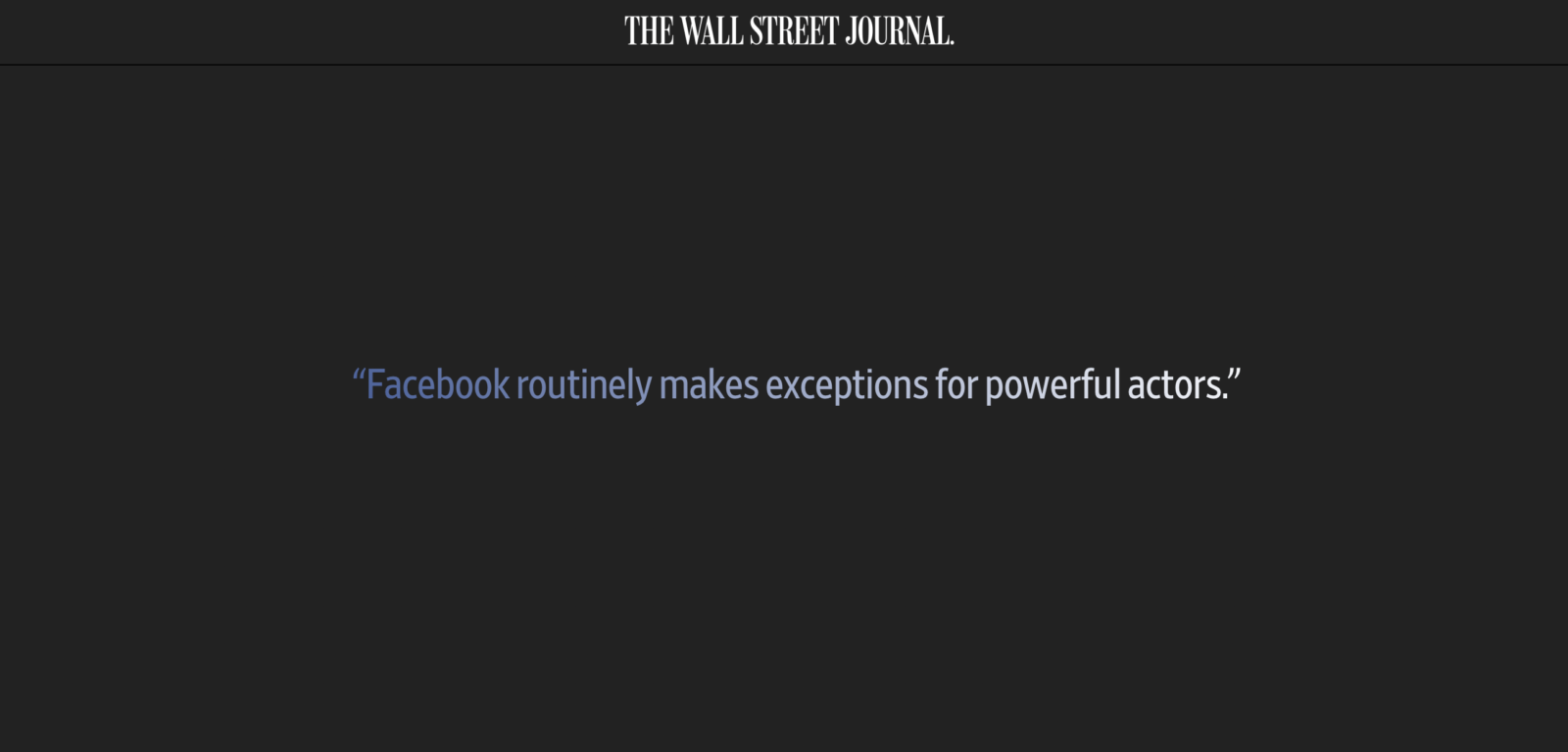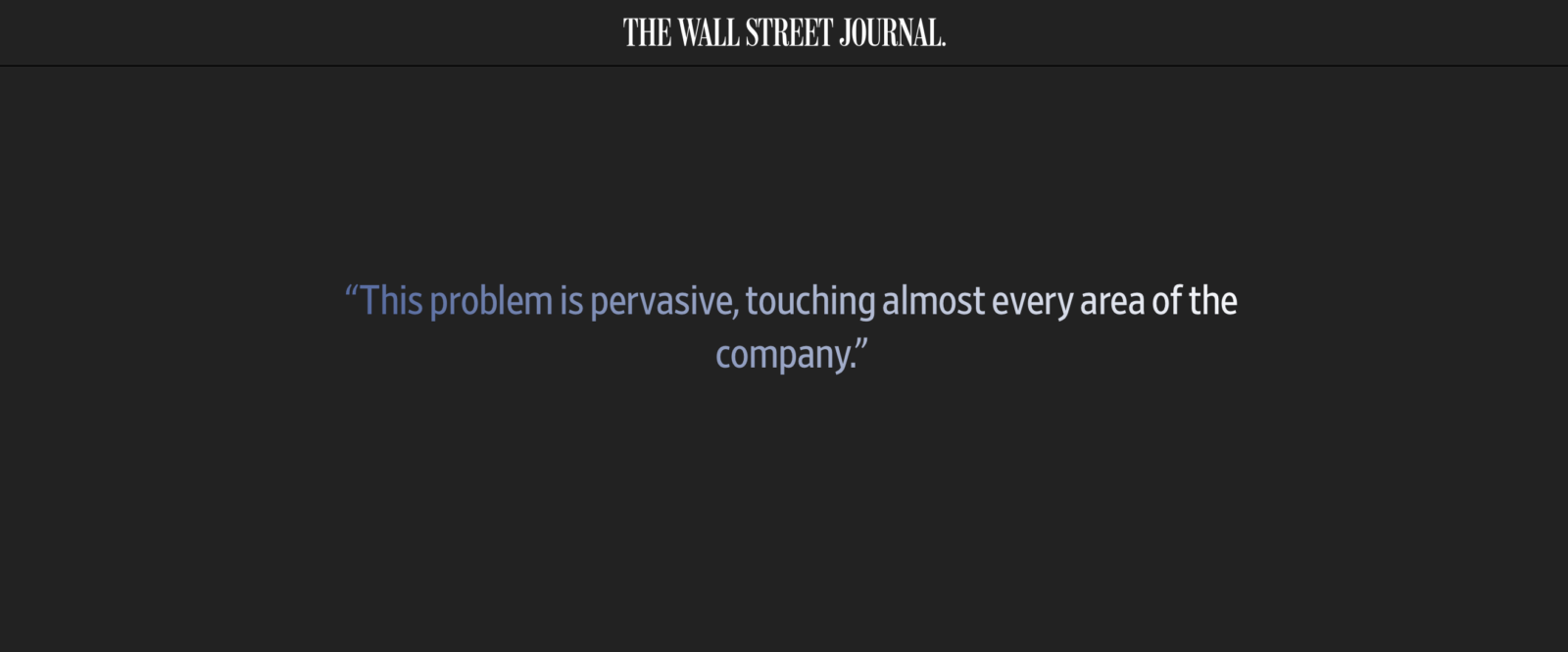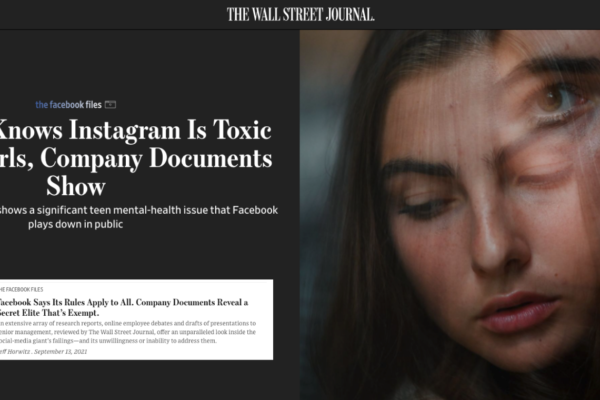Facebook knows Instagram is toxic and gives celebrities special treatment, WSJ investigation uncovers
The Wall Street Journal (WSJ) has this week published the findings of an investigative report into Facebook, inclusive of what it claims are internal documents. One slide posted on the company message board is reported to say, “Thirty-two percent of teen girls said that when they felt bad about their bodies, Instagram made them feel worse,” while an internal programme known as XCheck has given millions of celebrities and other high-profile users special treatment that exempts them from certain rules.
In the two-part investigative report, WSJ reporter, Jeff Horwitz, hones-in on the following areas:
- ‘Facebook Says Its Rules Apply to All. Company Documents Reveal a Secret Elite That’s Exempt. A program known as XCheck has given millions of celebrities, politicians and other high-profile users special treatment, a privilege many abuse.’
- ‘Facebook Knows Instagram Is Toxic for Teen Girls, Company Documents Show… Its own in-depth research shows a significant teen mental-health issue that Facebook plays down in public.’

You can read both parts of the investigation on the publication’s website, and as an introduction to some of the key issues they expose, we here highlight key passages from each:
On celebrity whitelisting
‘At times, the documents show, XCheck has protected public figures whose posts contain harassment or incitement to violence, violations that would typically lead to sanctions for regular users. In 2019, it allowed international soccer star Neymar to show nude photos of a woman, who had accused him of rape, to tens of millions of his fans before the content was removed by Facebook. Whitelisted accounts shared inflammatory claims that Facebook’s fact checkers deemed false, including that vaccines are deadly, that Hillary Clinton had covered up “pedophile rings,” and that then-President Donald Trump had called all refugees seeking asylum “animals,” according to the documents.’
On Instagram’s toxicity to teenage girls
‘In public, Facebook has consistently played down the app’s negative effects on teens, and hasn’t made its research public or available to academics or lawmakers who have asked for it. “The research that we’ve seen is that using social apps to connect with other people can have positive mental-health benefits,” CEO Mark Zuckerberg said at a congressional hearing in March 2021 when asked about children and mental health.’
But: ‘For the past three years, Facebook has been conducting studies into how its photo-sharing app affects its millions of young users. Repeatedly, the company’s researchers found that Instagram is harmful for a sizable percentage of them, most notably teenage girls. “We make body image issues worse for one in three teen girls,” said one slide from 2019, summarizing research about teen girls who experience the issues.
“Teens blame Instagram for increases in the rate of anxiety and depression,” said another slide. “This reaction was unprompted and consistent across all groups.” Among teens who reported suicidal thoughts, 13% of British users and 6% of American users traced the desire to kill themselves to Instagram, one presentation showed.’

This is of course not the first time that the social media giant has found itself in hot water in recent months, as our Global Media Tech Tracker demonstrates. But even by the level of controversy that some may have become accustomed to seeing around the platform, this investigation appears damming.
“These latest revelations about Facebook are shocking,” says James Hewes, President & CEO for FIPP. “The Wall Street Journal should be commended on another excellent piece of investigative journalism. No company is perfect and no consumer can reasonably expect that they should be.”
“However, they do expect a company that is aware of the harm it is doing to act in the best interests of society. Unfortunately, Facebook continues to act in ways that actively damages its consumers and society more broadly. What emerges from the first tranche of these revelations is that Facebook doesn’t really care about the harm it knows it’s doing, is probably incapable of acting on them even if it did care, and is so utterly consumed with its gargantuan bottom line that the idea of investing in the resources needed to mitigate these harms is unthinkable to them.”
“The case for proper external regulation and oversight has never been greater.”

On Twitter, Jason Kint, CEO of Digital Content Next (DCN) voiced his own concerns about the issues the WSJ investigation raises:
“Neymar’s accounts – all of them – across Facebook need to be permanently disabled. Flat out. According to WSJ report, you have a top 20 global influencer using Facebook as the weapon for revenge porn. When this happens, Facebook is supposed to permanently delete the account. [WSJ] Podcast adds critical context here. It was a zero tolerance issue. A Facebook employee saw it quickly but was not able to take down the post let alone delete account… because Neymar was on the VIP exemption list resulting in 24hrs, 50mm+ views of revenge porn.”
The WSJ investigation isn’t the only source of heightened controversy for Facebook right now. Last week, in conjunction with Ray-Ban, the company launched its new collection of smart glasses, complete with in-built cameras, speaker, microphone and voice assistant. Immediately, commentators began drawing attention to the privacy concerns that such technology brings: ‘Facebook is aware that the glasses, on sale now for £299/$299, are a difficult pitch from a company with a complicated relationship to user privacy,” wrote Alex Hern in The Guardian.
It’s a tricky year for the at one time posterboy the Web 2.0 age, but if this latest set of revelations from The WSJ is anything to go by, it could be about to get a whole lot trickier.









